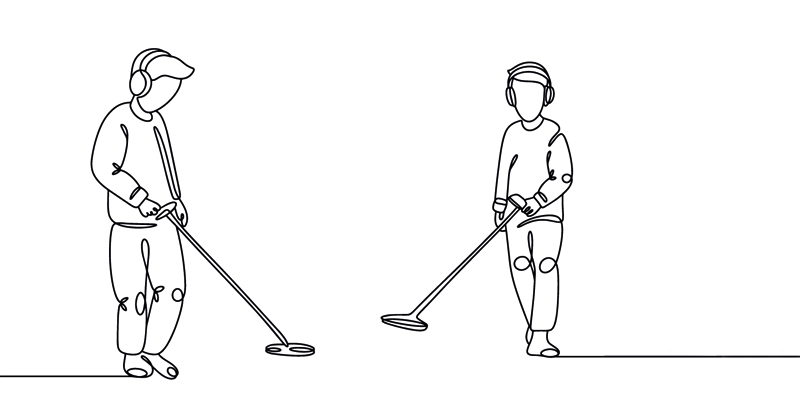
Preaching ‘conversion’ – a new minefield?
Last month, Let Us Pray held a conference in Glasgow, to help equip Christians to respond to the Scottish Government’s proposals for a new law on ‘conversion practices’.
The Editor of Evangelical Times, Mike Judge, gave the opening talk. He spoke on a topic that no Christian listener would think particularly unusual: conversion (watch the full talk here).
Conversion is central to the Christian faith. So, what impact might a new law on ‘conversion practices’ have?
Mike Judge began: “Conversion. Conversion lies at the heart of the Christian Gospel … We need only listen to the words of Jesus in the great commission: ‘Go out into all the world and make disciples of all nations, teaching them to observe all that I have commanded you.”
“To put it in its most simple form,” he continued, “if there is no change in a person, then that person has not really received the Gospel of Christ. A person’s heart must be changed, a person’s mind must be changed, a person’s life must be changed.”
You can see the problem. If our churches teach, as they always have, that people are changed when they come to a knowledge of the Gospel, then we seriously risk being accused of ‘conversion practices’.
Christian conversion does entail the transformation of a person’s heart and mind and, yes, everything else in their life. Perhaps it doesn’t happen all at once, or as quickly as we’d like, but the act of repentance – turning away from sin and towards Christ – means a continual determination to live in a holy way, in accordance with our new identity in Christ.
So, whether or not a person has previously claimed for themselves an LGBT identity, the Gospel gives us all a new ‘identity’ which is of infinitely greater significance than whatever came before.
Naturally, that changes our outlook on absolutely everything. We cannot see the world the way we did before. We cannot give our hearts to what we gave them to before. And we cannot behave the way we did before. As Mike Judge put it: “It is simply a contradiction in terms to believe in the idea of Christian conversion without requiring any change in a person’s life.”
But how do those pushing for a ‘conversion practices’ law describe what they hope to outlaw? Here is what the leading UK campaign group says: “[it] includes … religious … interventions that seek to change, “cure”, or suppress the sexual orientation and/or gender identity of a person.”
Does preaching the Gospel match up to that definition? It is easy to see how it could in some situations.
Proclaiming the Gospel is not an abusive practice. It is not an attempt to coerce or harm anyone. It is, indeed, the very opposite. We turn to God in dependence on Him. We ask Him to work within us by His Spirit, to change and transform us. To make us ever more like His own Son, Jesus. It is not a transformation any of us could bring about by our own strength or by force.
When we look at how transformation is characterised in the Bible, we read, for instance, that the Holy Spirit will produce in us love, joy, peace, patience, kindness, goodness, faithfulness, gentleness and self-control. Those are wonderful characteristics which our world cries out for more of. Living in a Christ-like way does not merely mean we stop doing certain sins, but that we are made new. It is good news – that is what ‘Gospel’ means of course – and it is the direct opposite of the harm and abuse we are so falsely accused of.
Nonetheless, this sort of teaching is in the sights of those who feel the Gospel’s call to holiness in the realm of sexual ethics and gender demands too much. There is every likelihood that spurious reports would be made about ordinary Christians, doing nothing other than sharing the Gospel and helping each other uphold the Bible’s teaching, under this sort of law.
Sadly, already there is the likelihood of being wrongly characterised as seeking to cause harm. As we planned to share short snippets of Mike Judge’s conference talk, it became clear that taken out of context, activists would be swift to accuse us of promoting abusive practices.
The claim that “if there is no change in a person, then that person has not really received the Gospel of Christ” is twisted out of shape by some as a direct call to abuse gay and trans people. It is far from it, but the accusation is readily made.
That is why we must continue to fight these laws. There is much at stake and, if these activists get their way, preaching conversion would become a minefield for our churches.
Mike wanted to encourage us: “Now is not the time to hide our light under a bowl. It’s time to put our light on a stand so that all may see it. We must stand up for the Gospel and for freedom for the Gospel. Otherwise we have no business calling ourselves Christians.”
Watch Mike Judge’s full conference talk here.
See also: “Given new life”: converted buildings and converted people
New Irish Govt Programme, same ‘conversion therapy’ promise
2026-01-30 09:42:59Plans to outlaw conversion therapy – what to expect in 2026?
2025-12-23 09:47:27Irish Labour demands ‘trans-inclusive conversion therapy ban’
2025-07-23 09:32:36
